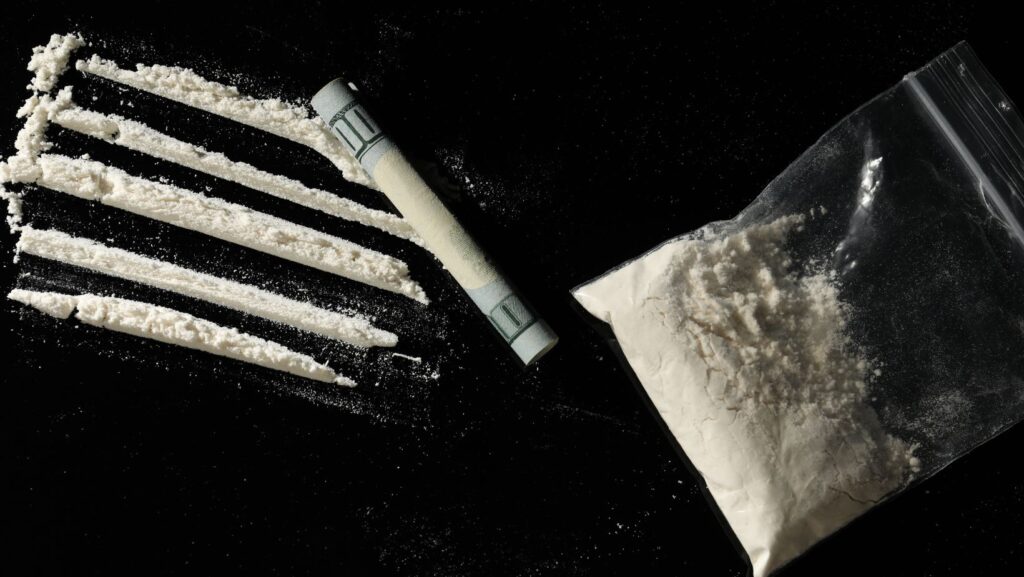Is cocaine taking a toll on your life? Cocaine addiction can creep up on you, stealing your peace and purpose. You might feel trapped, but know this: you’re not alone, and there’s a way out. That said, this guide will help you spot the signs, understand what you’re going through, and take steps to get the help you need.
What is Cocaine Addiction?
Cocaine addiction is a chronic and relapsing disorder characterized by the compulsive use of cocaine despite harmful consequences. Cocaine, a powerful stimulant drug derived from the coca plant, affects the central nervous system by increasing levels of dopamine, a neurotransmitter associated with pleasure and reward. For individuals struggling with this condition, seeking professional help from specialized facilities like Jackson House Addiction Treatment & Recovery Centers can provide the comprehensive care and support necessary for recovery.
Recognizing The Signs of Cocaine Addiction
Identifying cocaine addiction can be challenging, but understanding the signs can help in taking appropriate action.

Here are the key indicators across behavioral, physical, and psychological domains:
Behavioral Signs
- Increased Excitement: Sudden and intense energy bursts, excessive talkativeness, and overconfidence.
- Risky Behavior: Engagement in dangerous activities without regard for personal safety or consequences.
- Financial Issues: Unexplained need for money, borrowing, stealing, or financial instability due to spending on drugs.
- Social Isolation: Withdrawal from family and friends and associating with new social circles that encourage drug use.
- Neglect of Responsibilities: Ignoring or failing to fulfill obligations at work, school, or home.
Physical Signs
- Dilated Pupils: Enlarged pupils even in bright light conditions.
- Frequent Nosebleeds: Regular nosebleeds are caused by snorting cocaine.
- Weight Loss: Significant loss of weight and decrease in appetite.
- Sleep Disturbances: Insomnia or irregular sleep patterns, often staying awake for long periods followed by excessive sleep.
- Runny Nose: Constant runny nose or sniffles without having a cold or allergies.
Psychological Signs
- Mood Swings: Extreme mood changes, including irritability, anxiety, and agitation.
- Paranoia: Irrational suspicion or belief that others are out to get them.
- Depression: Intense feelings of sadness, hopelessness, or worthlessness, particularly when not using cocaine.
- Hallucinations: Seeing or hearing things that aren’t there, which can be very disturbing and frightening.
Recognizing these early signs can help in seeking timely and effective treatment, thereby increasing the chances of successful recovery.
Steps To Seeking Help For Cocaine Addiction
Seeking assistance for cocaine addiction is a significant and courageous step. Here are the general steps you can follow:
- Acknowledge the Problem
Acknowledging the problem is the first and most critical step in seeking assistance for cocaine addiction. It requires honest self-reflection and acceptance that your use of cocaine is beyond your control and is negatively affecting your life.
Recognizing the problem means understanding that addiction is a disease, not a moral failing. This realization can be challenging but is essential for moving forward. Acknowledgment paves the way for seeking help and sets the foundation for your recovery journey.
- Reach Out for Support
Reaching out for support is crucial when battling cocaine addiction. Start by talking to trusted friends or family members about your decision to seek help. Sharing your struggles and intentions with others can provide emotional relief and build a support network that encourages your recovery.
Additionally, consider joining a support group such as Narcotics Anonymous (NA), where you can connect with others who understand your experiences. Support groups offer a sense of community, shared experiences, and practical advice from those who have been in your shoes.
- Consult a Healthcare Professional
Consulting a healthcare professional is a vital step in addressing cocaine addiction. Schedule an appointment with a doctor, therapist, or addiction specialist who can provide an accurate assessment of your condition. Be open and honest about your cocaine use, including how often and how much you use it.
This information will help the healthcare provider develop an appropriate cocaine addiction treatment plan tailored to your needs. Medical professionals can also screen for co-occurring mental health disorders that may need to be addressed alongside addiction.
- Develop a Treatment Plan
Working with your healthcare provider, develop a personalized treatment plan that addresses all aspects of your addiction. This plan may include a combination of therapy, medication, and lifestyle changes. Therapy options consist of individual counseling, group therapy, or family therapy, each offering different benefits and support structures.
Medications may be prescribed to manage withdrawal symptoms or co-occurring mental health issues. Your treatment plan should also incorporate lifestyle changes such as improving diet, increasing physical activity, and establishing a healthy routine.
- Consider Detoxification
For many individuals, detoxification is a necessary step in overcoming cocaine addiction. Medically supervised detox programs provide a safe and supportive environment to manage the physical symptoms of cocaine withdrawal. These programs typically offer round-the-clock medical care, ensuring that any complications are promptly addressed.
Detox is not a cure for addiction but a crucial first step in the recovery process, helping to cleanse your body of cocaine and reduce physical dependence. Detoxification can be physically and emotionally challenging, but with a professional support system, you can navigate this initial phase of recovery safely.
- Participate in Therapy
Therapy is a cornerstone of addiction treatment, offering tools and strategies to address the underlying causes of cocaine use. Cognitive behavioral therapy (CBT) is particularly effective, helping you recognize and change harmful thought patterns and behaviors related to addiction.

Other therapeutic options, such as contingency management, motivational interviewing, or 12-step programs, can also be beneficial. Therapy provides a structured environment to explore your addiction, develop coping skills, and build a foundation for long-term recovery.
- Develop Healthy Coping Mechanisms
Developing healthy coping mechanisms is essential for managing stress and avoiding relapse. Addiction often thrives on unhealthy coping strategies, so it’s crucial to replace them with positive alternatives.
Mindfulness practices, such as meditation and deep breathing exercises, can help you stay grounded and manage cravings. Physical activities like exercise can improve your mood and overall health. Engaging in hobbies and creative pursuits can provide a productive outlet for your energy and emotions.
- Build a Support Network
Building a strong support network is key to a successful recovery. Surround yourself with supportive and understanding individuals who encourage your efforts to stay sober. This network can include family, friends, support group members, and healthcare professionals.
Regular attendance at support groups and therapy sessions helps reinforce your commitment to recovery. A robust support network provides emotional support, accountability, and practical advice, helping you navigate the ups and downs of your recovery journey.
- Avoid Triggers and High-Risk Situations
Identifying and avoiding triggers and high-risk situations is crucial for maintaining sobriety. Triggers can be people, places, or situations that prompt cravings for cocaine. It’s important to recognize what these triggers are and develop strategies to avoid or cope with them.
This might mean making significant changes in your lifestyle, such as avoiding certain social circles or activities associated with drug use. Developing a plan for handling unavoidable triggers, such as stressful situations or emotional distress, is also essential.
- Stay Committed and Patient
Recovery from cocaine addiction is a long-term process that requires commitment and patience. Understand that there will be challenges and setbacks along the way, but these do not define your recovery journey.
Celebrate small victories and milestones, recognizing that each step forward is progress. Stay committed to your treatment plan, and be patient with yourself as you navigate the ups and downs of recovery. Persistence and dedication are crucial to overcoming addiction and achieving lasting sobriety.
- Consider Aftercare and Long-Term Support
Engaging in aftercare programs after completing initial treatment is crucial for maintaining sobriety. Aftercare can include ongoing therapy, support group meetings, and regular check-ins with your healthcare provider.
These programs provide continued support and guidance, helping you stay focused on your recovery goals. Long-term support is essential for preventing relapse and addressing any challenges that arise post-treatment. By staying connected to aftercare resources, you can build a stable and fulfilling life free from cocaine addiction.
Conclusion
Cocaine addiction is a formidable adversary, but it is not invincible. Recognizing the subtle yet telling signs of this insidious drug’s grip is crucial in the battle for recovery. By understanding the behavioral, physical, and psychological manifestations of cocaine addiction, individuals, families, and communities can take proactive steps to intervene and seek help. Remember, there is no shame in admitting the need for assistance.
